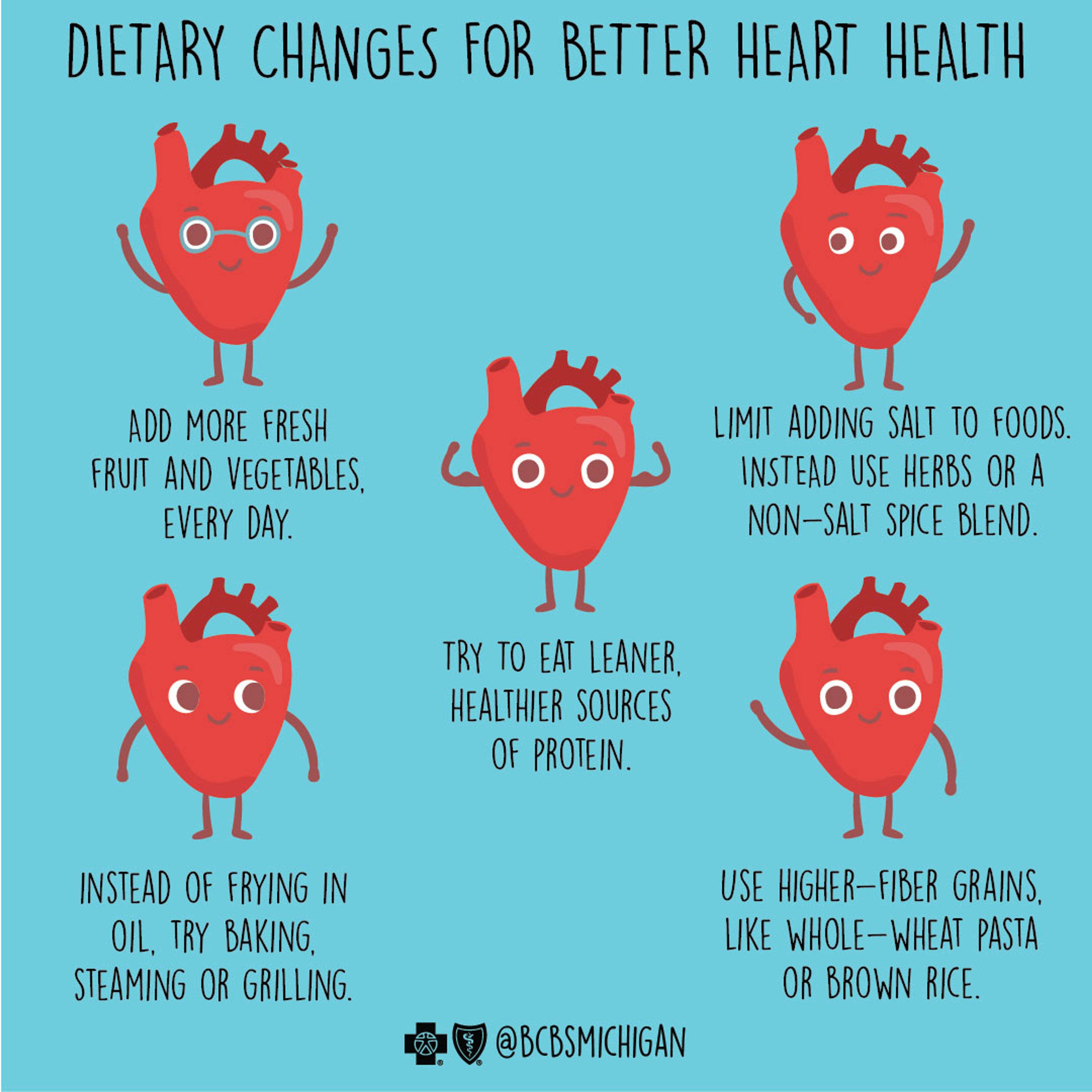Check in With Your Heart Health

Dr. James Grant
| 4 min read
James D. Grant, M.D. is senior vice president and chief medical officer at Blue Cross Blue Shield of Michigan. Dr. Grant is a native Michiganian and graduate of Wayne State University School of Medicine. He completed his post graduate training at Northwestern University Medical Center in Chicago. He is a diplomate of the American Board of Anesthesiology, completed his recertification in 2008 and is an associate examiner for the Board.

It’s that time of year when New Year’s resolutions start to fade and people slowly revert to habits that aren’t so healthy; which makes it a good time of year to refocus -- especially when it comes to heart health. According to the Centers for Disease Control and Prevention (CDC), heart disease is the leading cause of death for men and women in the United States, accounting for one in every four deaths.
The term “heart disease” encompasses a variety of conditions. The most common is coronary artery disease, which is a build-up of plaque that can narrow the arteries and restrict blood flow. This can lead to heart attack or stroke.
Often, individuals do not know they have a heart condition until they experience symptoms of a potential heart attack, such as shortness of breath; extreme fatigue; pressure in the chest; or discomfort in the chest, shoulder, arms or jaw. Those experiencing any of these urgent symptoms should call 9-1-1 or head to the nearest emergency room.
Risk factors for heart disease
Being aware of risk factors for heart disease can help to identify issues early on and create action plans to prevent or slow the advancement of the condition. There are several factors that increase the risk of developing heart disease. Heredity plays a part. Other risk factors can be managed with lifestyle modifications and include:
- High blood pressure – When the pressure of the blood flowing through arteries and veins is too high, it stresses the heart and can make it weaker over time. This can lead to heart attack, stroke, kidney problems and more.
- High cholesterol – This is an excess of a waxy substance in the blood. It creates fatty deposits that can build up in arteries and impede blood flow. These fatty deposits also can form a clot that causes heart attack or stroke.
- Obesity – Obesity is linked to several conditions that stress the heart, including excess fat in the blood, high cholesterol and high blood pressure.
- Smoking – Smoking tobacco damages the heart and blood vessels. In addition, nicotine from cigarettes and vaping devices raises blood pressure.
- Maintaining a diet high in fat, sodium, or cholesterol – All of this can lead to high blood pressure, obesity, or high cholesterol, which in turn is linked to heart disease.
- Low amounts of physical activity – Getting regular physical activity lowers one’s risk for heart disease.
- Too much alcohol – Alcohol raises blood pressure and can lead to a build-up of triglycerides - a fatty substance in the blood.

Ways to lower your risk
Individuals with these risk factors can lower their risk by eating a healthier diet, losing weight, getting more exercise, limiting alcohol to two drinks a day for men and one drink for women, and quitting tobacco use. A healthier diet does not need to be complicated or restrictive. In fact, making drastic changes in one’s diet often leads to failure, because it’s too difficult to stick with. For heart health, there are several simple dietary changes that can have a positive impact:
- Add more fresh fruit and vegetables, every day
- Limit adding salt to foods. Shake on some herbs or a non-salt spice blend for added flavor instead
- Try to eat leaner, healthier sources of protein, like nuts, legumes, fish and lean poultry or meat and instead of frying in oil, try baking, steaming or grilling
- Use higher-fiber grains, like whole-wheat pasta or brown rice
Individuals should talk with their doctor before beginning an exercise program or changing their diet. Healthy habits now can prevent or slow the progression of heart disease. Let’s make this year the year for healthy habits that last.
James D. Grant, M.D., is senior vice president and chief medical officer at Blue Cross Blue Shield of Michigan.
More from MIBluesPerspectives:
- The Easiest Ways to Stay On Top of Your Diabetes
- What You Can Do to Help Prevent Chronic Conditions
- Routine Pregnancy Checkup Saves Mom and Baby
Photo credit: Getty Images





